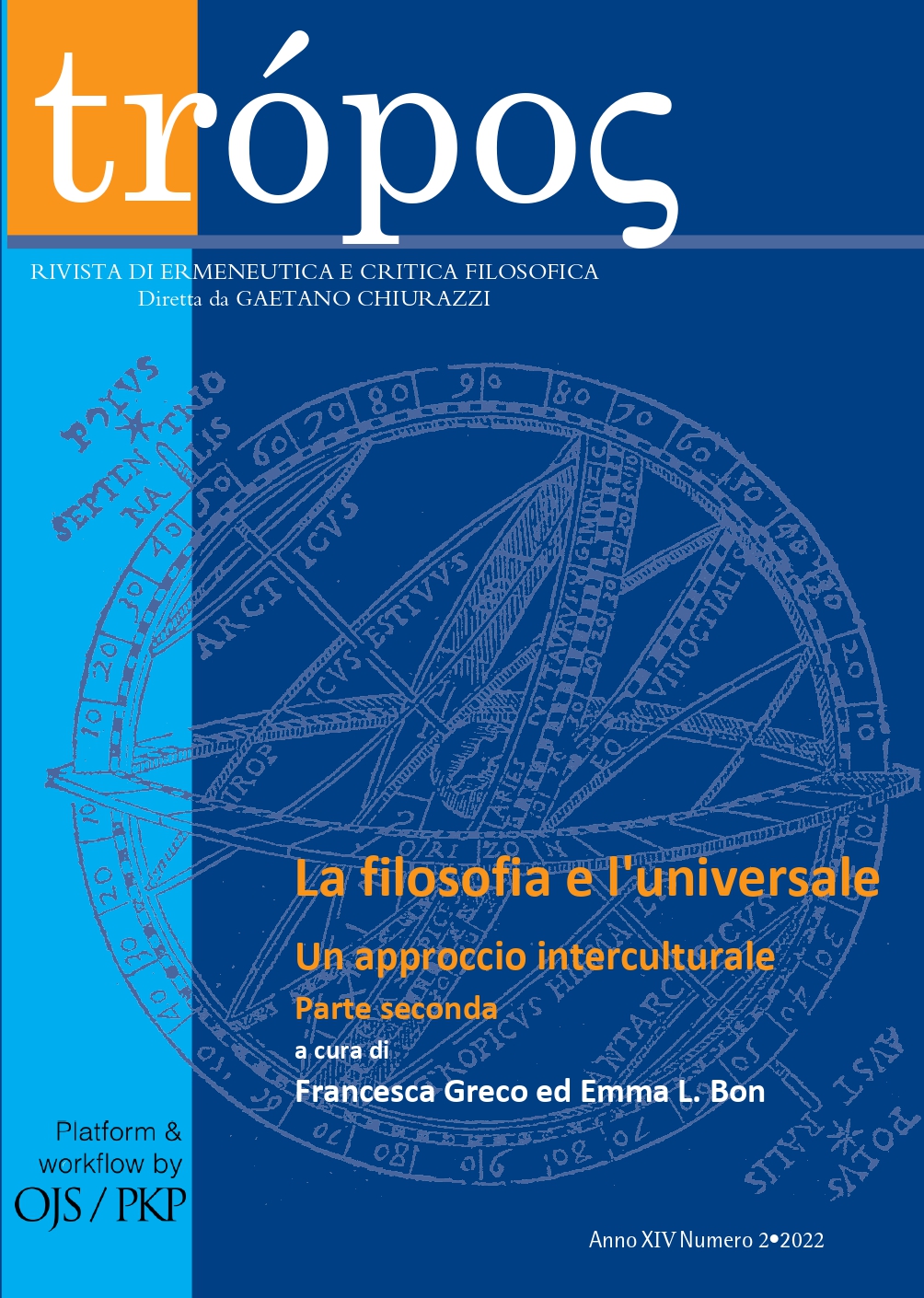Tensioni tra aspirazioni universali e manifestazioni particolari nel buddhismo Theravāda
DOI:
https://doi.org/10.13135/2036-542X/9363Parole chiave:
Theravāda Buddhism, Pāli canon, Abhidhamma, Pāli commentaries, Pāli languageAbstract
This contribution will discuss the concepts of universal and particular in relation to the doctrinal transmission of Theravāda Buddhism. At first, the transformation of the universal doctrine known as Dhamma in a particular teaching (sāsana) will be considered. Later, the attempt by Buddhists to universalize the way of exposition known as Abhidhamma will be addressed, also briefly discussing a late narrative in which the Buddha preaches the Abhidhamma in a Heaven to his mother. As this narrative is included within the commentarial literature, the latter will be introduced as a way to maintain a more circumlocutory way of exposition (more particular and less universal). Finally, the language in which the Theravāda texts reached us, the so called Pāli, will be historically introduced, highlighting its function as a ‘language of convenience’ and observing how the Theravāda exegesis attempted to universalize such a language.


